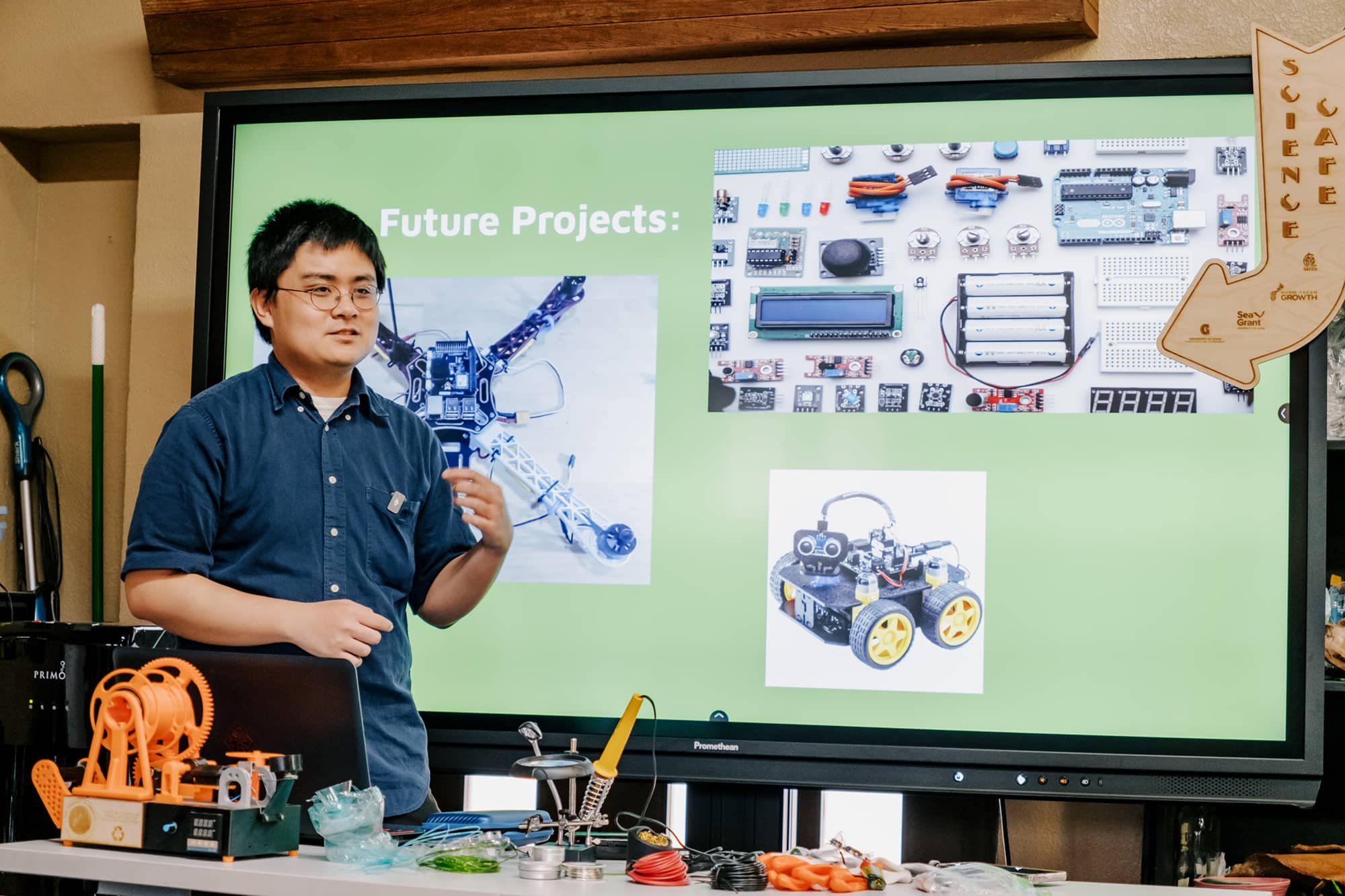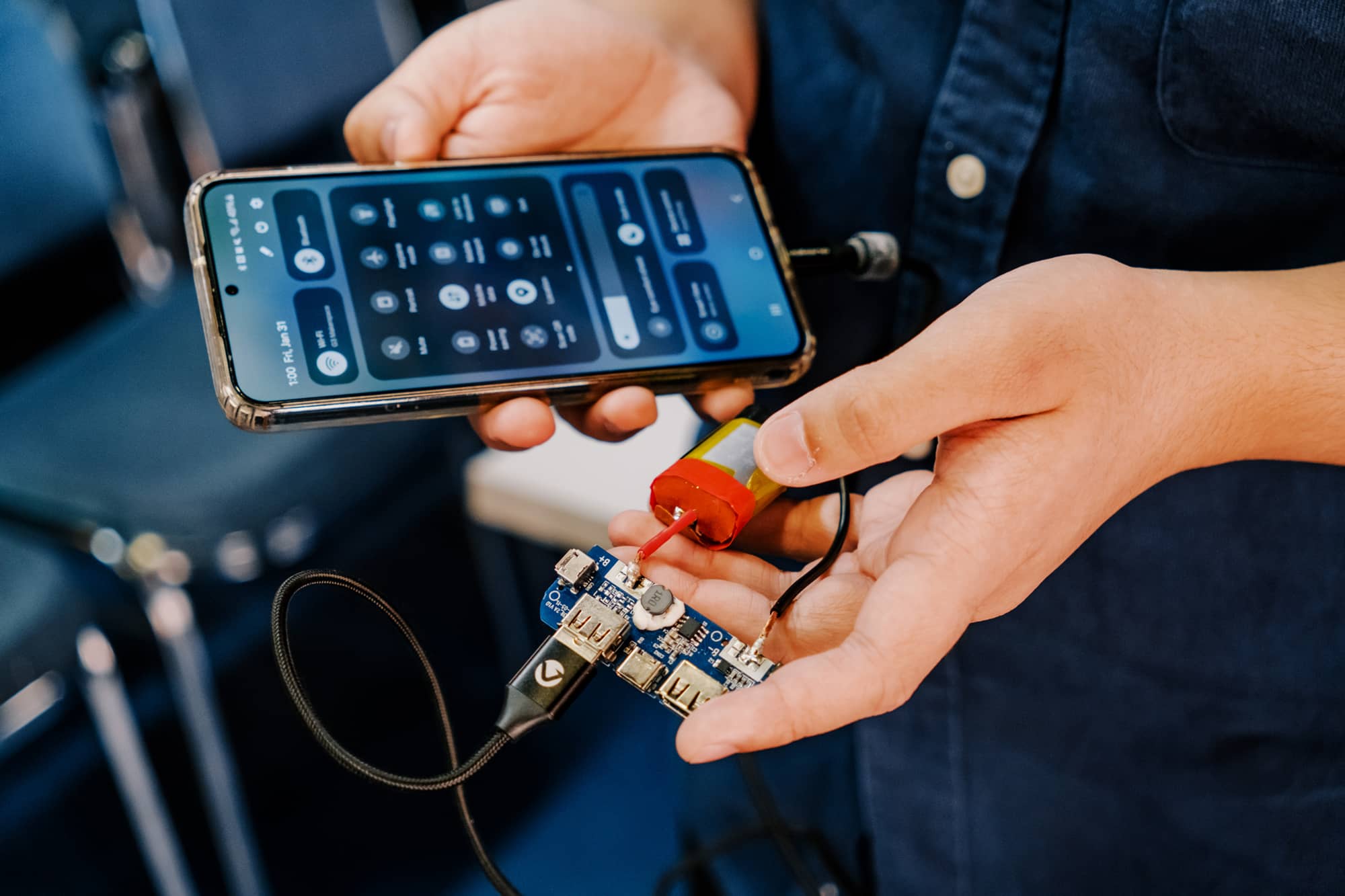UOG Student Researcher presents innovative solution for vape battery waste at G3 Makerspace Science Café
UOG Student Researcher presents innovative solution for vape battery waste at G3 Makerspace Science Café
UOG Student Researcher presents innovative solution for vape battery waste at G3 Makerspace Science Café
2/7/2025
Carlo Tapia, a student intern researcher with the University of Guam Center for Island Sustainability and Sea Grant (UOG CIS and SG), recently presented his research on converting used vape batteries into functional power bank chargers at a Guam Green Growth (G3) Makerspace Science Café event. The presentation highlighted a potential solution to the growing problem of electronic waste, particularly the disposal of vape batteries, which contain hazardous materials.
Tapia’s research explores the feasibility of repurposing the lithium-ion batteries found in disposable vapes, which often end up in landfills, posing environmental risks. His project focuses on extracting the usable components from these batteries and integrating them into a design for a portable power bank, offering a second life to materials that would otherwise be discarded.
“My angle for this is to bring a bit more awareness to vape batteries, the lithium ion, despite being disposable, can still be used for other things,” said Tapia. “I wanted to focus on power banks because here on Guam we have a lot of typhoons and this idea can help.”
The Science Café event, held at the G3 Circular Economy Makerspace and Innovation Hub, provided a platform for Tapia to share his findings with the community and engage in a discussion about sustainable solutions. Attendees included fellow students, faculty, environmental advocates, and members of the public.
“To see the work that our students are doing here at the University of Guam and the improvements the results can help develop for our community is inspiring,” said Austin Shelton Ph.D. the director of the UOG CIS and SG. “Our programs are here to support our local student researchers across their science disciplines and help them develop their work.”
The G3 Makerspace, a hub for innovation and sustainability, provides resources and equipment for individuals and organizations to develop and test sustainable solutions. The Science Café series is one of several initiatives aimed at fostering a culture of innovation and entrepreneurship in Guam.
Tapia is also a former Guam NSF EPSCoR student researcher. He participated in the program’s Summer Math Research Experience (SMRE) and recently presented at the National Diversity in STEM conference hosted by the Society for the Advancement of Chicanos/Hispanics and Native Americans in Science (SACNAS) in Phoenix, Arizona.
According to Tapia, his research is ongoing and he hopes to further refine his design and explore the potential for scaling up the process. He expressed his gratitude to the CIS and Sea Grant for their support and mentorship.


